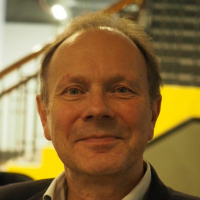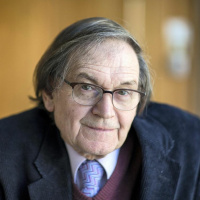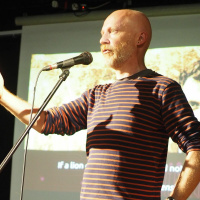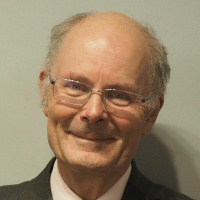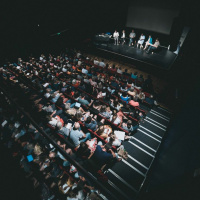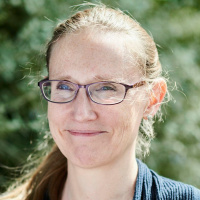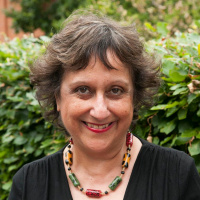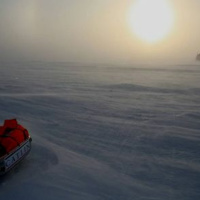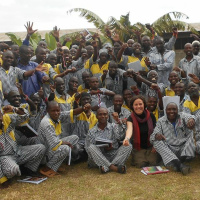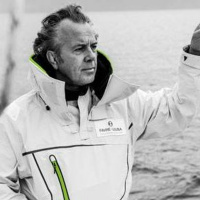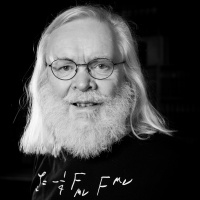Informações:
Synopsis
Agile Rabbit (www.agile-rabbit.com) is a platform that provides special events for the South-West and beyond to focus on ideas, global affairs and the natural and scientific world. The events are set in contrasting venues across the South-West to provide quirky experiences, which welcome conversation. There is a monthly talk and discussion at Exeter Phoenix, and other special events elsewhere including IntoBodmin and Marine Theatre Lyme Regis. The events include panel discussions, debates, film screenings, and performances. This diversity of experiences sets the tone of Agile Rabbit as inclusive, emphasising our key theme: That cutting edge thinking can be at the centre of everyday life.OriginLapin Agile is a cabaret in Montmartre, Paris. At the turn of the twentieth century artists, thinkers, and scientists would gather to discuss ideas and socialise.
Episodes
-
Dr Mark Freestone | Is My Partner A Psychopath?
09/03/2020 Duration: 01minFind out what makes a psychopath, from the leading expert who helped to create Killing Eve’s Villanelle. Dr Mark Freestone has worked on some of the most interesting and infamous psychopath cases of recent times
-
Dr Mark Freestone | Making a Psychopath
09/03/2020 Duration: 39minFind out what makes a psychopath, from the leading expert who helped to create Killing Eve’s Villanelle. Dr Mark Freestone has worked on some of the most interesting and infamous psychopath cases of recent times. Exploring the many factors that make a psychopath, the complexities and contradictions of their emotions and behaviour, as well as an examination of how the lives of psychopaths develop inside and outside the institutions that treat them, this talk will open up a window into the world of those who operate outside of common human emotion.
-
Prof Karyn Morrissey | Health Inequalities & Climate Change
26/02/2020 Duration: 30minRecent headlines across the world declared that Climate Change is the “the biggest global health threat of the 21st century”—based on the Lancet Countdown on health and climate change published in November 2019. Its co-author joins us from the University of Exeter to discuss her vital work behind the story. The impacts of climate change are not felt equally. Those on low incomes—who are already more likely to have worse health—will suffer most from weather extremes, food shortages and flood damages, causing further health problems. Health inequalities in the UK are already stark. If you are born in parts of Glasgow, your life expectancy is 26 years less than someone born in Kensington & Chelsea. Across Western Europe life expectancy can vary by up to 10 years. In this timely talk—followed by audience questions and discussion—Professor Karyn Morrissey discusses the current health inequalities crisis and how climate change will bring our health systems to the brink. Karyn’s research is informing city leve
-
Julian Hector | Big Natural History Television & Conservation
26/02/2020 Duration: 30minOur speaker is head of the BBC Natural History Unit; founded in the 1950s as the first and biggest production unit of its kind, it is regarded as the world’s greatest maker of wildlife documentary films. Planet Earth, Frozen Planet, Life on Earth, and dozens more groundbreaking series were all delivered by this Bristol-based outfit. Julian Hector discusses the relationship between Natural History Television and the conservation of the natural world it depicts. Julian looks at the power of documentaries to move the public, change government policy, and inspire scientists across the world. This talk reveals special secrets and stories behind the making of documentaries, while charting their effect on our attitudes and behaviour to a natural world in crisis. Followed by Q & A Held in partnership with Two Short Nights film festival and the Global Systems Institute at the University of Exeter.
-
Sir Roger Penrose | Evaporating Black Holes & Hawkings Points
18/11/2019 Duration: 30minA new area of cosmology is the subject for the physicist, mathematician and philosopher of science, famous for many achievements, in particular his work with Stephen Hawking. This talk focuses on recent ground-breaking observations of anomalous points in the very early universe that appear to be sources of vast amounts of energy. These could have been produced by black holes evaporating before the Big Bang. Sir Roger will explain how this is new evidence that our universe is just one stage in a potentially infinite cycle of cosmic extinction and rebirth.
-
Prof Marcus du Sautoy | Creativity Code: How AI is learning to write, paint & think
15/11/2019 Duration: 30minSlides available here: glsr.it/creativitycode Will a computer ever compose a symphony, write a prize-winning novel, or paint a masterpiece? New developments in AI are shaking up the status quo, as we find out how many of the tasks humans engage in can be done equally well, if not better, by machines. But can machines be creative? In this talk, based on his bestselling book, Marcus du Sautoy examines the nature of creativity, as well as describing how algorithms work, and the mathematical rules underpinning them. He asks how much of our emotional response to art is a product of our brains reacting to pattern and structure, and exactly what it is to be creative in mathematics, art, language and music. Marcus finds out how long it might be before machines come up with something creative, and whether they might jolt us into being more imaginative in turn.
-
Why Brexit is Challenging Britain's Party Politics| Sir John Curtice
08/11/2019 Duration: 30minPoliticians assert that their views reflect the will of the British people, especially when it comes to Brexit. In this special talk, the President of the British Polling Council examines the evidence behind these claims. It takes place on the last day of the extension to Article 50. Professor John Curtice is the political scientist always at the centre of election night broadcasts for the BBC. He accurately predicted the results of the results in 2005, 2010, and 2015. Theresa May said that in pursuing Brexit she was delivering ‘the Brexit people voted for‘. Opponents of Brexit, often take the contrasting view that voters were misled during the EU referendum, and now that they are more aware of the supposed downsides of leaving the EU they should be given the chance to register their second thoughts in a second ballot. Professor Curtice examines the statistics behind both arguments.
-
The Extinction Rebellion Lawyer | Farhana Yamin
28/10/2019 Duration: 30minWhen police unglued Farhana Yamin from the forecourt of the Shell building—during recent climate protests—she became a figurehead of the Extinction Rebellion movement. The Climate Change lawyer appeared on front pages across the world and deftly handled interviews on programmes such as Newsnight. For this Agile Rabbit talk, Farhana argues that now is the time to rise up and rebel. Activism, she asserts, is key to affecting meaningful action that will combat Climate Change. Farhana’s work against Climate Change goes further back that recent protests. She worked on the Earth Summit in Rio in 1992, the Paris Agreement between 200 nations, and represents small island nations affected by Climate Change in international legal cases. There was hope that governments would follow scientific expertise when making long-term strategic policy. Farhana argues that governments’ resistance against real action makes activism necessary. Individual lifestyle adjustments make little difference, and governments must now lead—
-
Can I do anything about Climate Change?
04/09/2019 Duration: 01h00sDo you wonder if altering your diet, cutting down on flights, or declaring a climate emergency makes any difference to climate change? This lively discussion with world-leading speakers from politics, business, activism, and science, moves beyond superficial responses to the vital question ‘Can I do anything about climate change?’ Many of us are inspired to act against Climate Change. But can small individual actions ever make a real difference, or do we need radical activism to bring meaningful change? Perhaps a systems based approach is needed, so the most beneficial outcome is also the easiest. Agile Rabbit is delighted to welcome Cath Senior from the Met Office; Piers Forster, lead author of IPCC reports and member of the Committee on Climate Change; Molly Scott-Cato, our region’s Green MEP; Danny Chivers, poet, activist and writer; and Steffen Boehm, Professor in Organisation and Sustainability at the University of Exeter. Ritula Shah from the BBC’s The World Tonight chairs the discussion. Finally,
-
The Mental Health Crisis in Schools | Prof Tamsin Ford
05/08/2019 Duration: 30minIn this timely talk, Professor Tamsin Ford discusses mental health and its relationship to education. She gets behind the headlines, asking if there is a mental health crisis for children and young people. Tamsin has been part of the team that carries out the official national, annual survey of children’s mental health since it began. Her research informs policy for health services and schools in the UK. Recently, Professor Tamsin Ford was awarded a CBE for her pioneering work on the mental health of children. We’ll discover how her vital research has found its way into the real world—impacting the services for children and young people.
-
Before the Big Bang | Prof Laura Mersini-Houghton
09/07/2019 Duration: 45minRecent groundbreaking discoveries support the view that our universe is part of a larger cosmic structure: a multiverse. Gravitational anomalies in the structure of our universe are ‘tugs’ exerted by other universes. These exciting theories are indicated by the work of our speaker, Professor Laura Mersini-Houghton. She’s a super-star scientist whose been interviewed by Jeremy Paxman, worked with Stephen Hawking and appeared with Morgan Freeman on Through The Wormhole. Predictions of her multiverse theory have been successfully tested by the Planck satellite and at CERN by the Large Hadron Collider, genuinely making new contributions to our understanding of nature of space and time, dark energy, and quantum physics.
-
Freedom of Speech in a Globalised World | Yasmin Alibhai - Brown
23/05/2019 Duration: 30minWe are living through disruption to politics and society. Increasingly this is delivered by individuals proudly claiming their rights to free speech. Should individual rights always take precedence over collective, social responsibility? Despite its flaws, do we need to defend political correctness in a turbulent world?
-
Explore South West
08/04/2019 Duration: 01h00sExplore South West launches with a lively public panel discussion on the topic “Is there anything left to explore in the 21st century?”. “The glory-seeking adventurer of old is giving way to explorers who want to understand the planet rather than dominate it.” This is how The Economist heralded the New Age of Discovery. Panel members will explain why the need to explore has never been more urgent and relevant, and how, in their own work they are contributing to a greater understanding of our planet through their discoveries. Chaired by Ritula Shah, BBC Radio 4 presenter, The World Tonight. Panel members include Faraz Shibli, Johanna Wadsley, Sam Lee & Niall McCann. This Friday night lecture preludes a one day seminar the following day: Explore South West at Exeter University, for anyone planning expeditions and field research overseas, with a focus on self-led student projects. The discussion is followed by a performance by folk singer and naturalist Sam Lee.
-
Shark & Chips?
05/04/2019 Duration: 30minThe sale of shark meat in fish and chip shops was dramatically uncovered by a team at the University of Exeter, led by Dr Andrew Griffiths. Andrew will tell the story behind his headline-grabbing work that recently identified threatened sharks on sale to the British public. The wonderful diversity of sharks and rays around the UK and their decline are Andrew’s passion. He will describe how genetic approaches – based at looking at a shark’s DNA – provide unique insights into the ecology and conservation of this animal that we find so fascinating.
-
Underwater Sound in Blue Planet II | Prof Steve Simpson
20/03/2019 Duration: 30minSteve explains how he has pioneered new ways of listening to the ocean and of interacting with fish (including underwater puppetry), to understand whole soundscapes and to unlock the language of fish. He also discusses his engagement with key marine industries, which aims to reduce and manage human noise pollution in the quest for quieter seas. Steve’s research was featured in David Attenborough’s Great Barrier Reef series in 2015, and his work on underwater noise pollution screened in the final Episode of Blue Planet II. Previously this series of talks was under the branding of Intrepid Explorers Exeter
-
Life through an ice hole: Arctic acidification| Dr Ceri Lewis
20/03/2019 Duration: 30minDr Ceri Lewis (University of Exeter) talking at Exeter Intrepid Explorers in March 2018. Ceri Lewis shares her stories of her exciting field work in the arctic on the Catlin Arctic Survey. The Catlin Arctic Survey was an exciting multidisciplinary expedition, in which scientists and explorers investigated ocean acidification processes and their impact on marine organisms. The field trip involved camping on the sea ice in unheated tents at -40°C while collecting vital data. Ceri talks about the importance of the science conducted on this expedition, the challenges of working at a low temperature and key findings of her work. Previously this series of talks was under the branding of Intrepid Explorers Exeter
-
A Year in a Namibian Village | Dr Helen John
20/03/2019 Duration: 30minHelen spent a year living in an Owambo homestead in the remote North of Namibia. There, she conducted anthropological and biblical research into the relationship between African Traditional Religion and Christianity. An inexperienced fieldwork researcher at the outset, Helen encountered many highs and lows and, despite her best efforts, was challenged by the circumstances on numerous occasions. Helen was welcomed into a wonderful host family and community. In this talk, Helen will tell tales from the year, illustrating the unpredictable and challenging nature of fieldwork, as well as what she has learned for her next expedition. Previously this series of talks was under the branding of Intrepid Explorers Exeter
-
Using Mindfulness in Kenyan prisons | Dr. Inma Adarves-Yorno
20/03/2019 Duration: 30minDr. Inma Adarves-Yorno is a mindfulness meditator, TED speaker, researcher, and trainer. She has witnessed the transformational power of mindfulness when aligned with a meaningful social identity. In this talk, Inma tells the fascinating story of the successes and failures of a mindfulness movement in Kenyan prisons. The first part of Inma’s story will focus on the largest maximum security prison where the ingenious mindful leadership programme was born: inmates were transformed onto mindful leaders. She will also talk about disappointing long term impact in a female prison, where ‘mindful screaming’ was born and a seemly great failure in the worst prison in Kenya. Inma details how mindfulness is now moving beyond prisons walls to elsewhere in Kenyan society. Want to learn more about mindful leaders in Kenya? -----> http://sites.exeter.ac.uk/mindfulleaderskenya/ Previously this series of talks was under the branding of Intrepid Explorers Exeter
-
Isn’t 90º North a Lifeless, Irrelevant and Pointless Place?! | Pen Hadow
20/03/2019 Duration: 30minPen Hadow is one of the world’s leading explorers. In 2003 Pen Hadow became the first person to trek solo, and without resupply, across the Arctic Ocean’s sea ice from Canada to the North Geographic Pole – a feat that has never been repeated. But of the 850 hours spent hauling his sledge, over 30 hours were in the water. It led to a revelation that big environmental changes were taking place. The sea ice cover, previously in effect creating a protected marine reserve, was now receding. With it, the habitat was going, one that provides to a unique ecosystem that includes some of the largest, the longest-living, best-loved, and the least-researched animals on Earth. Pen reflects on the significant discoveries made by Arctic Mission last summer, and encourages all who listen to consider that exploration has never been more important or urgent in human history, if we are to live sustainably. Previously this series of talks was under the branding of Intrepid Explorers Exeter
-
The View from CERN | Prof John Ellis
20/03/2019 Duration: 30minIn this Agile Rabbit podcast, Professor John Ellis CBE from CERN asks the fundamental questions about the Universe and our place within it ~ questions that humans have been asking for hundreds of thousands of years. John Ellis is a theoretical physicist interested in particle physics, astrophysics, cosmology and quantum gravity. For many years he worked for CERN, the European particle physics laboratory near Geneva.




